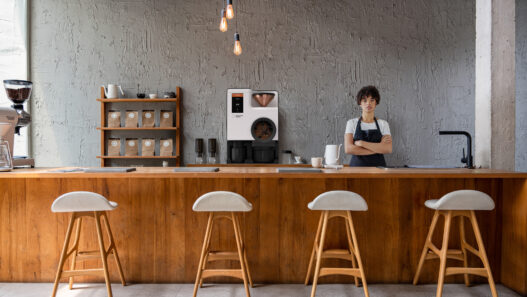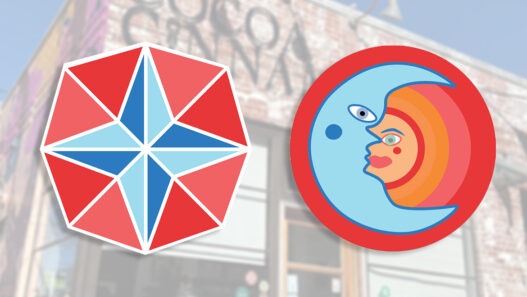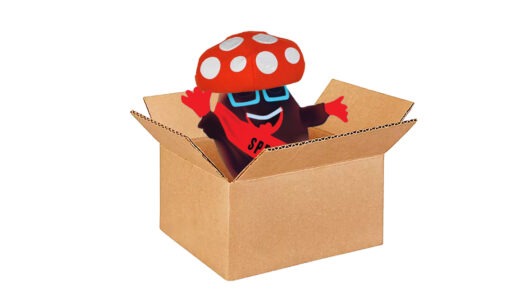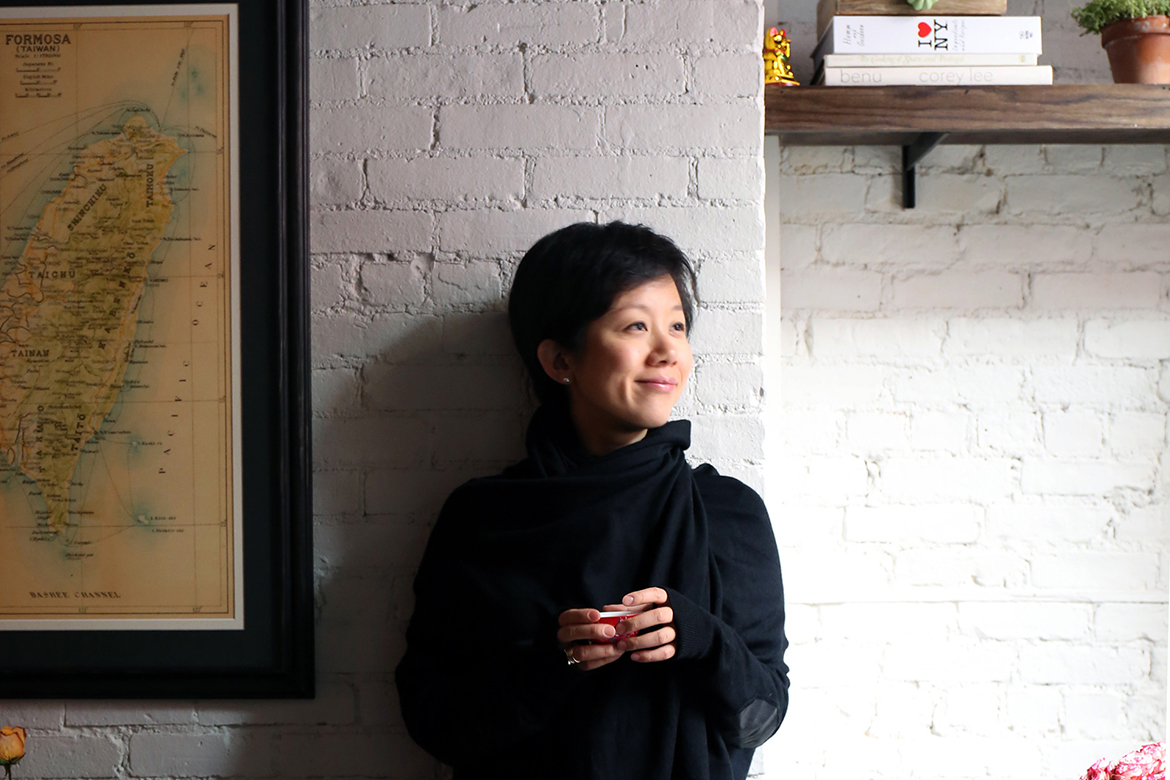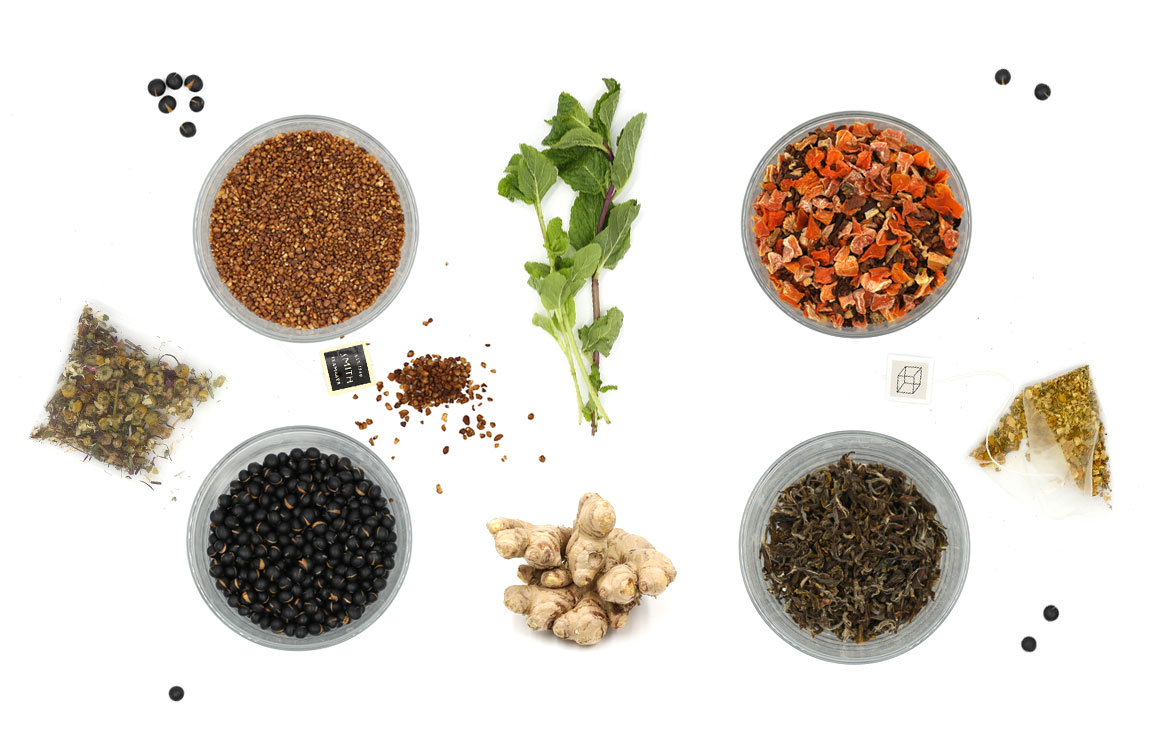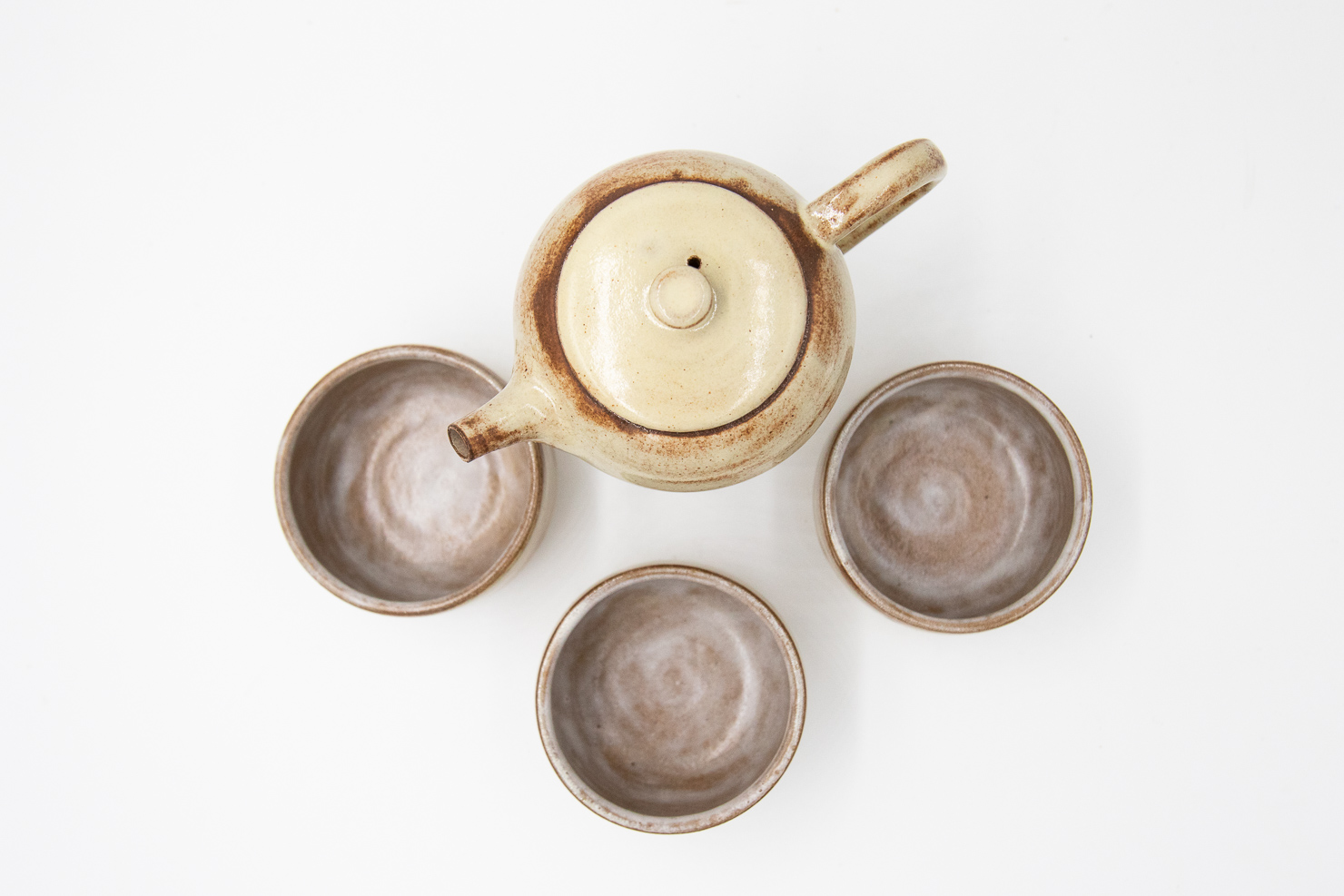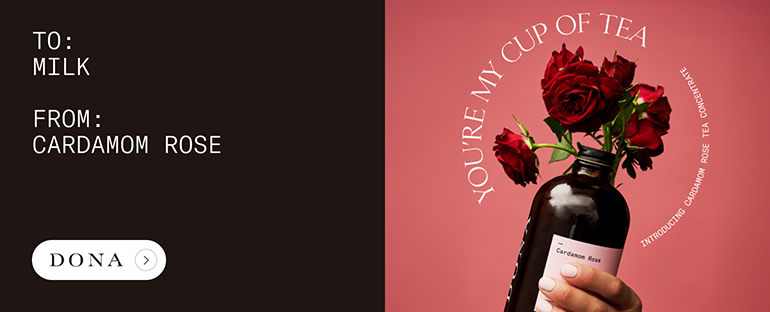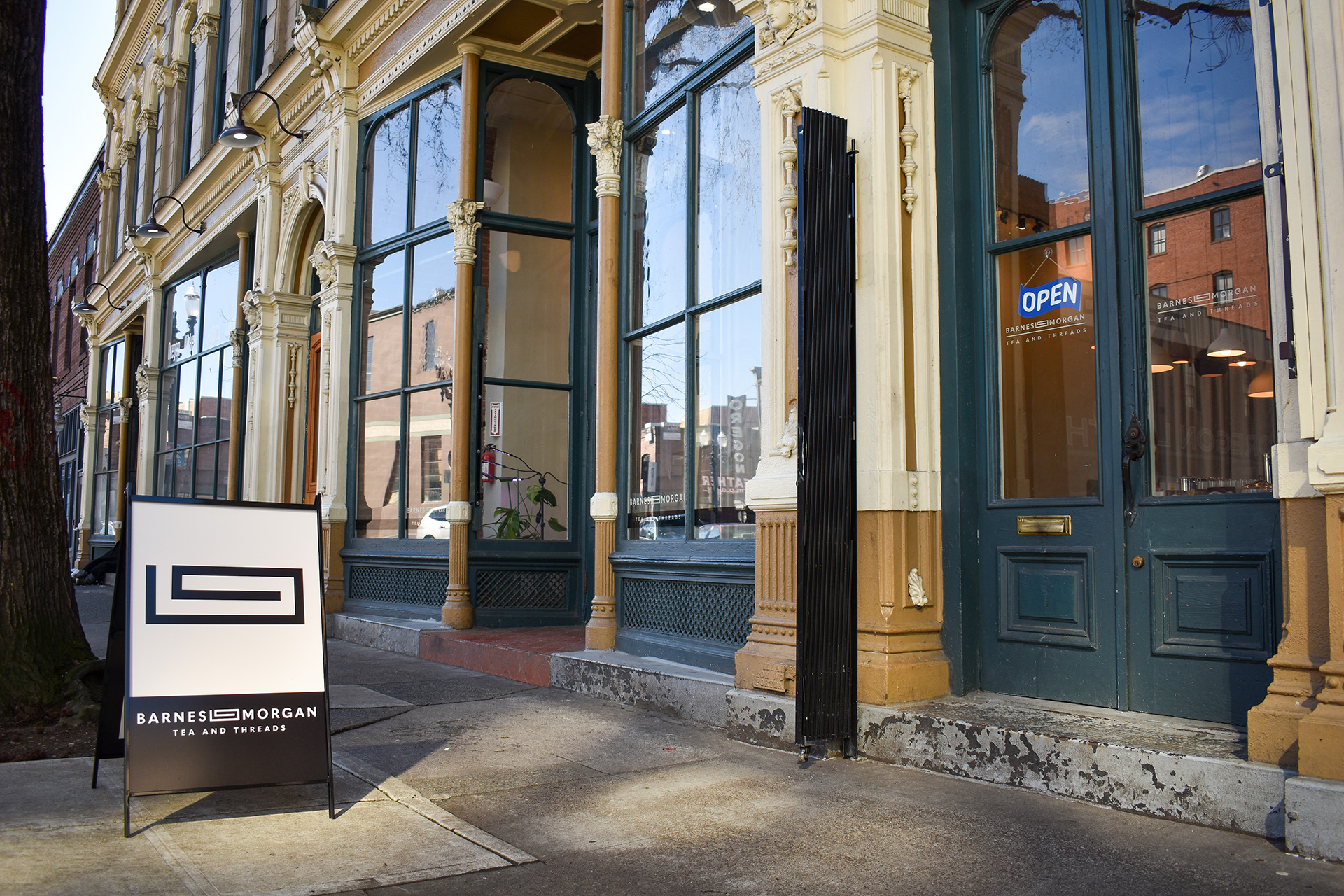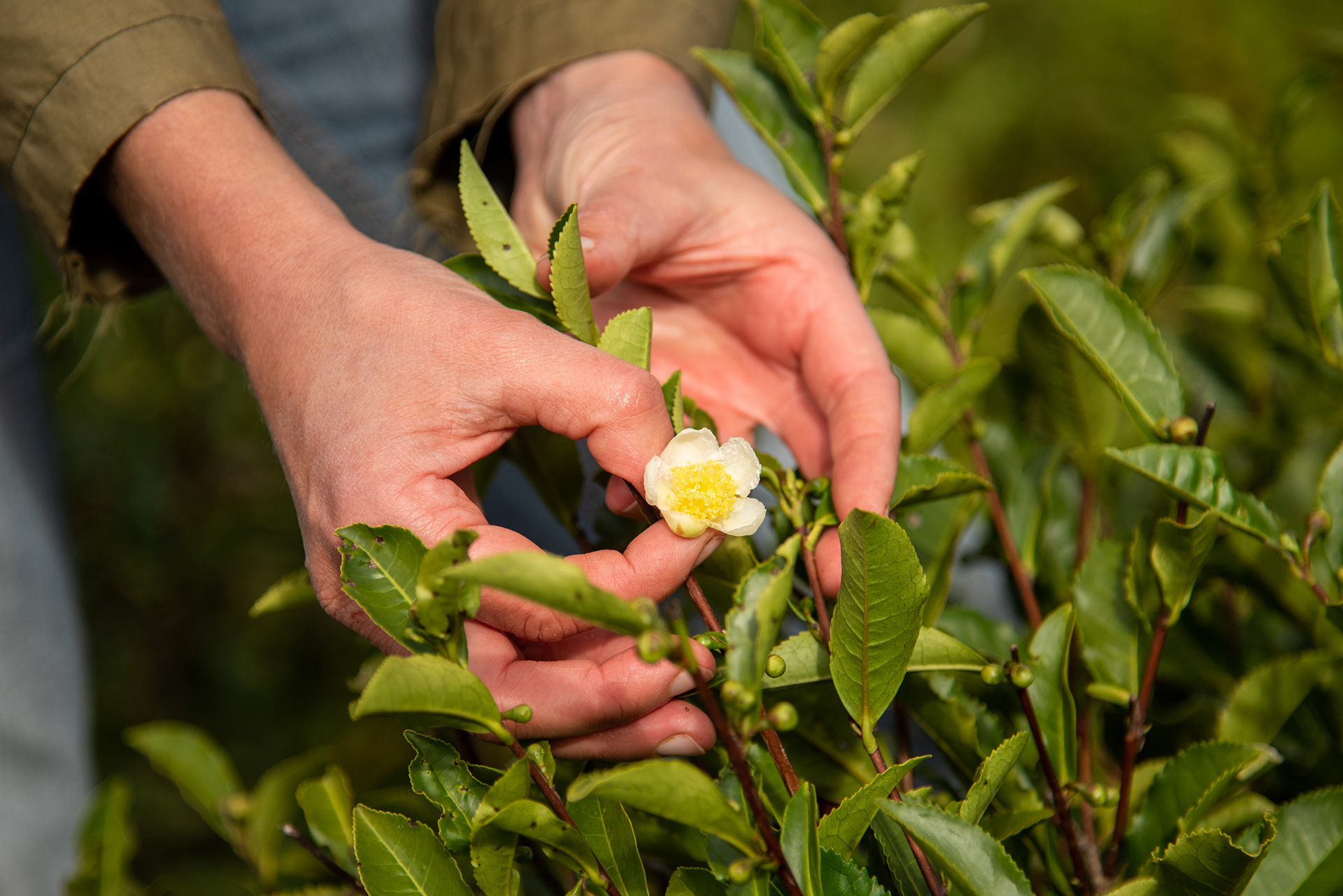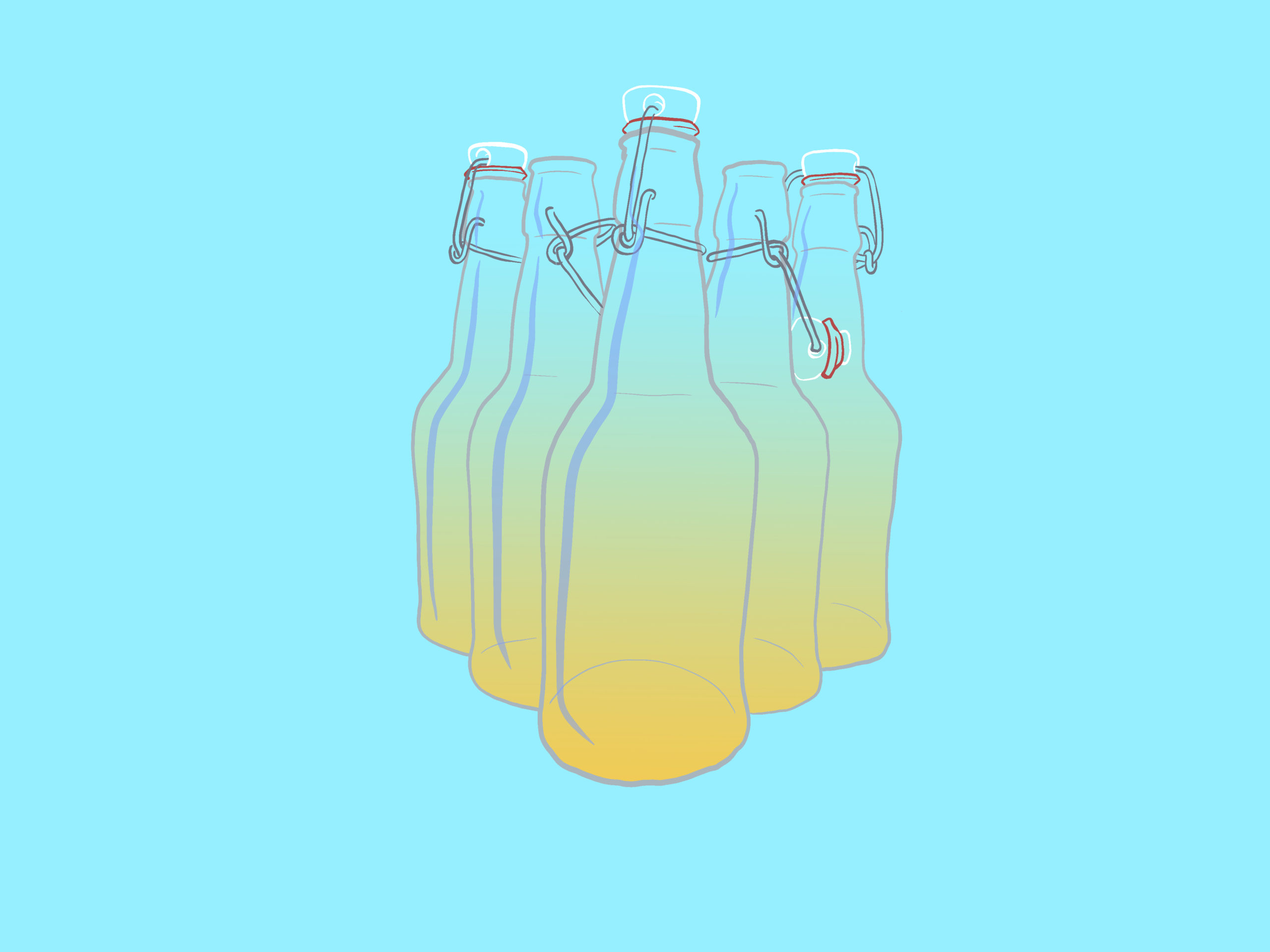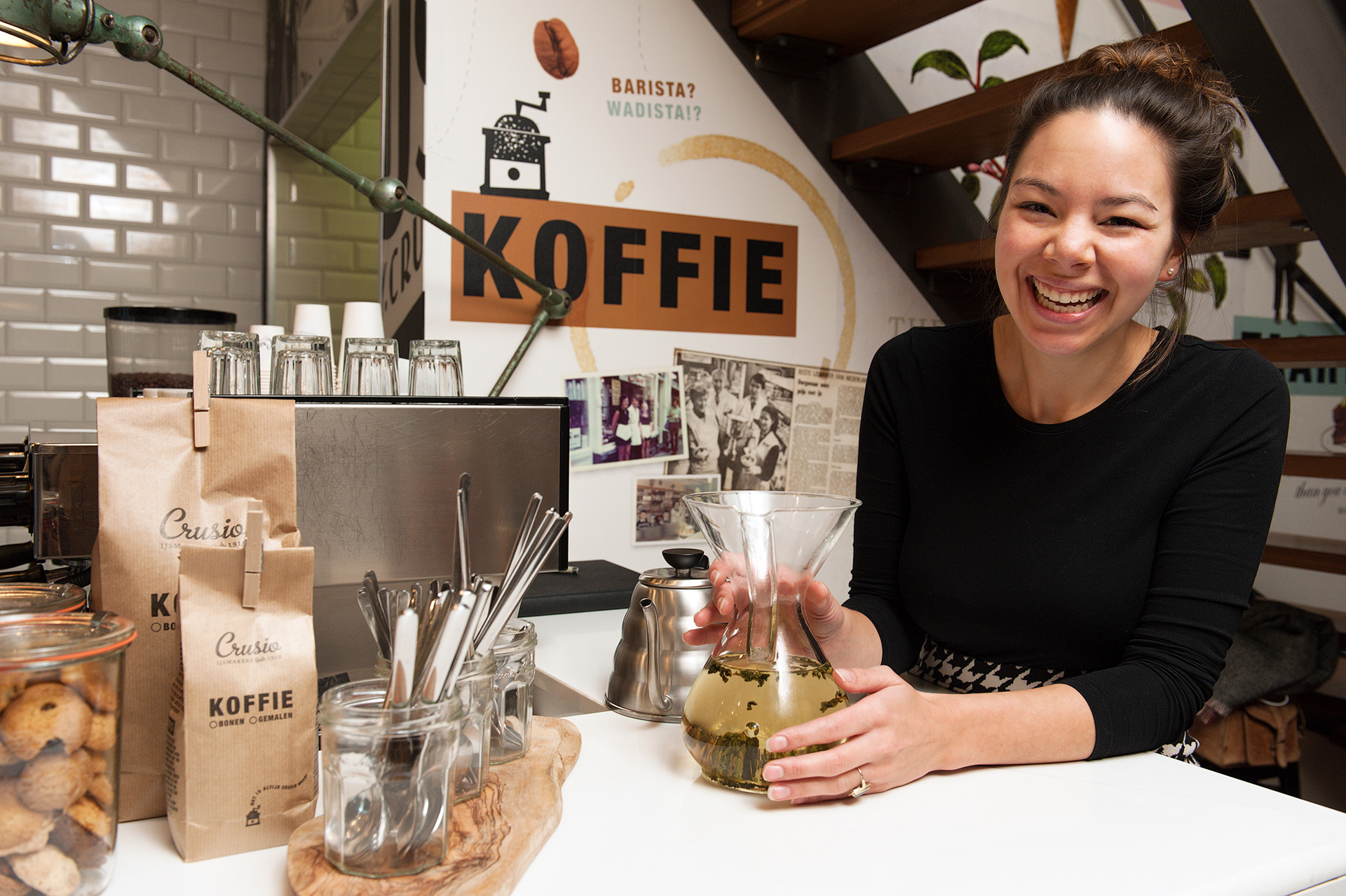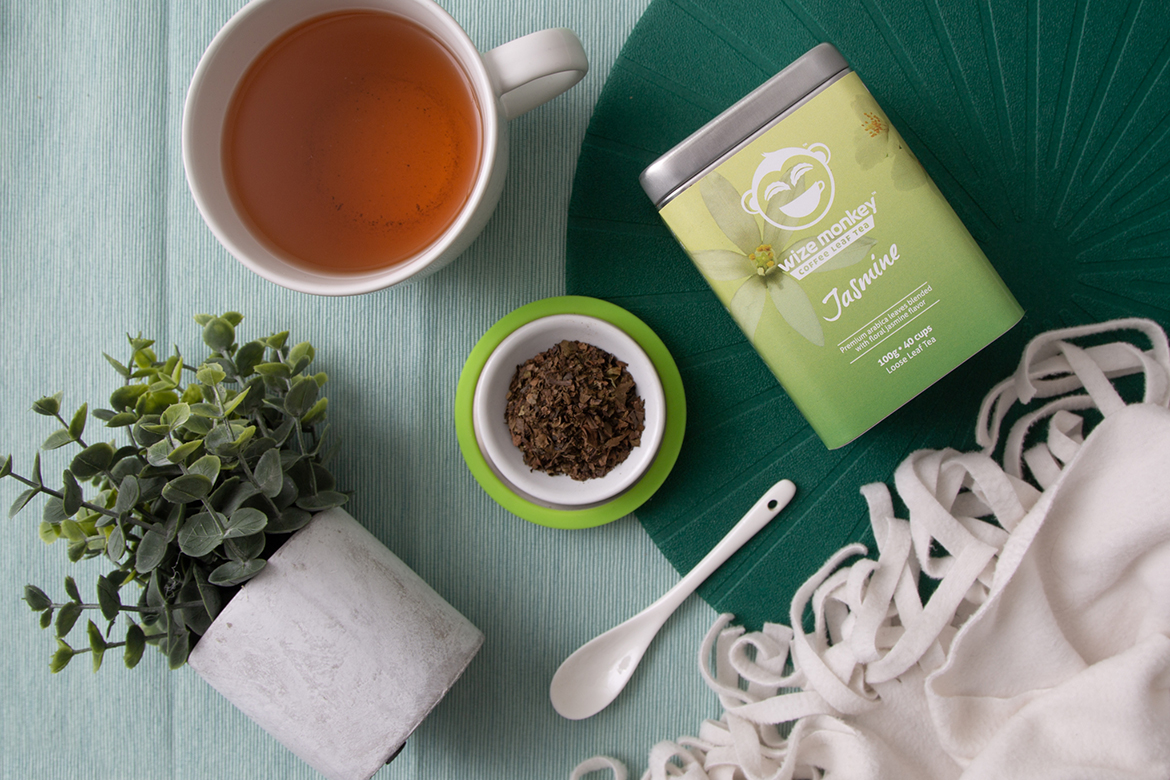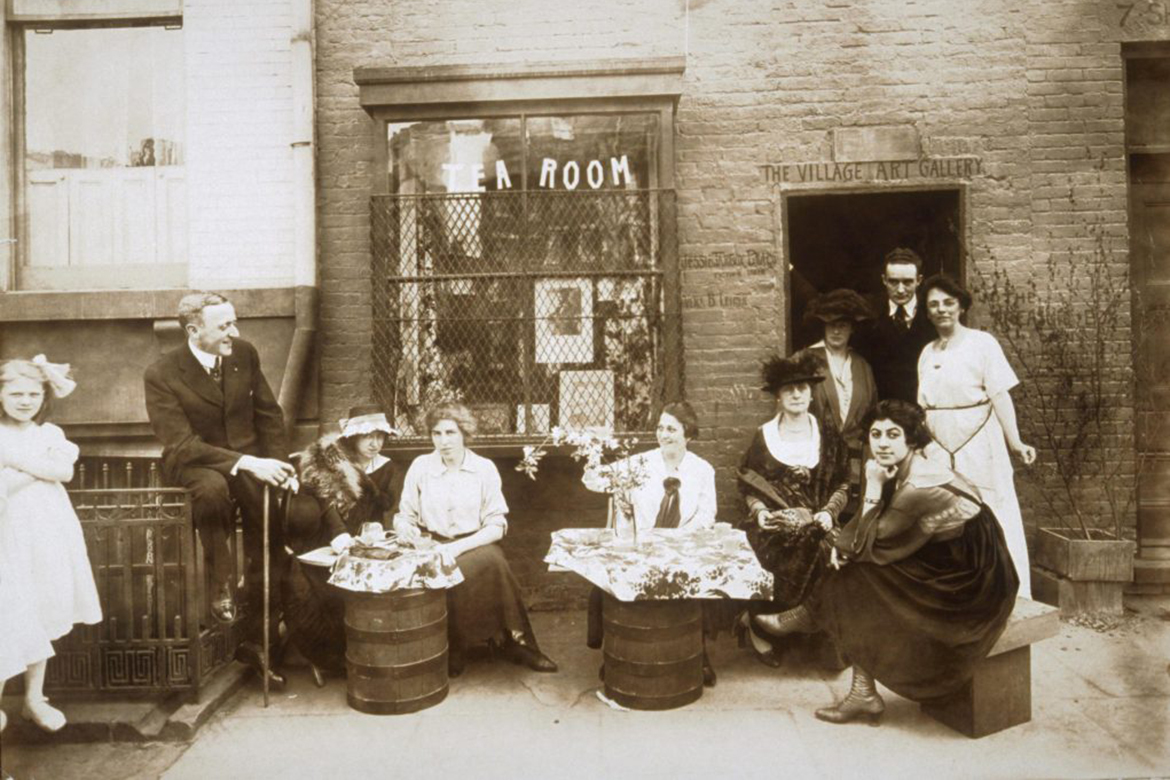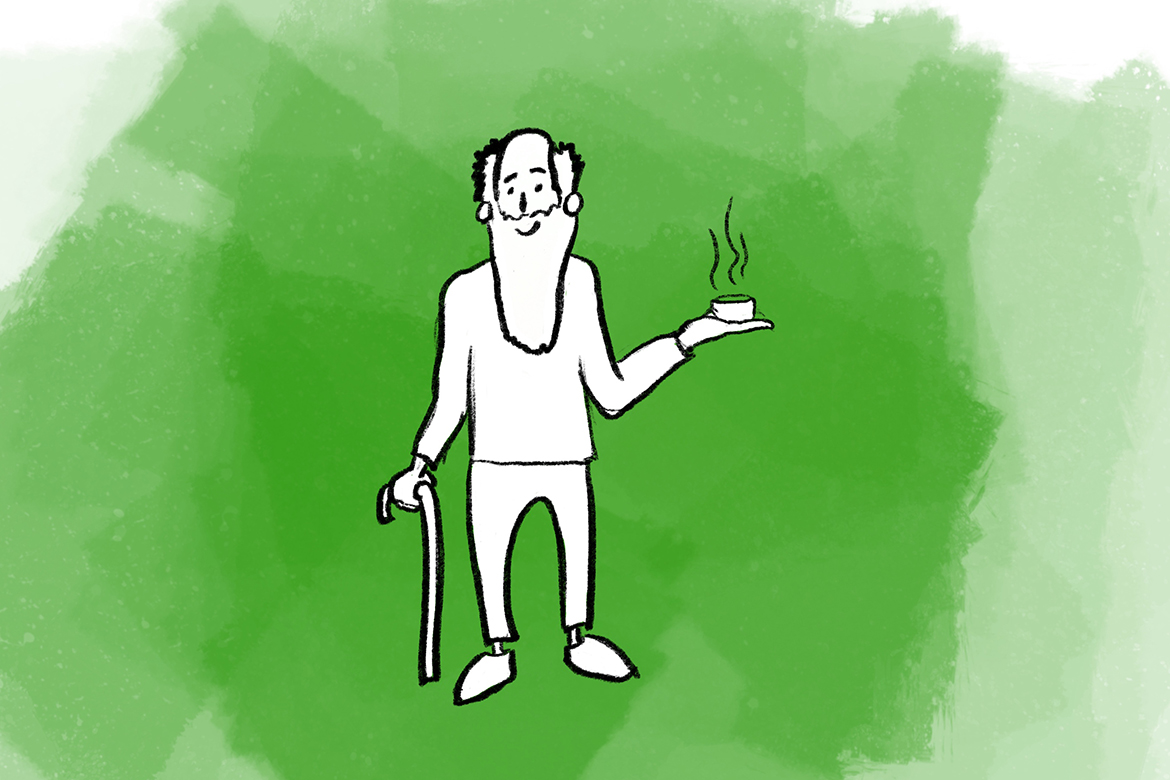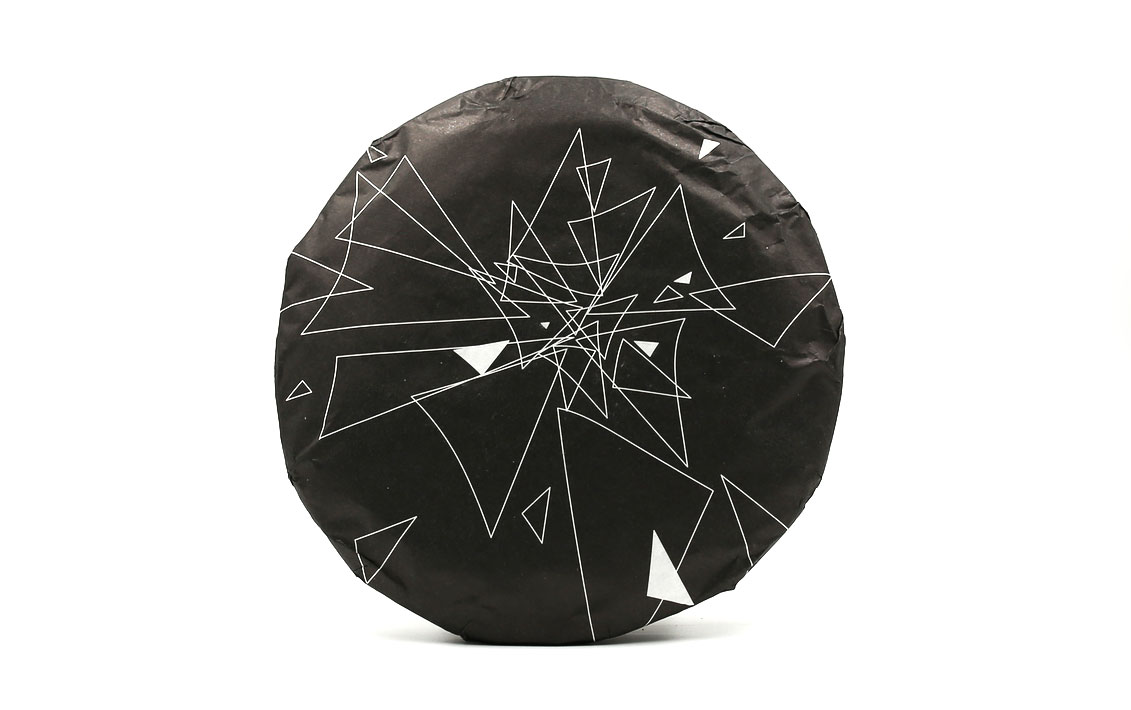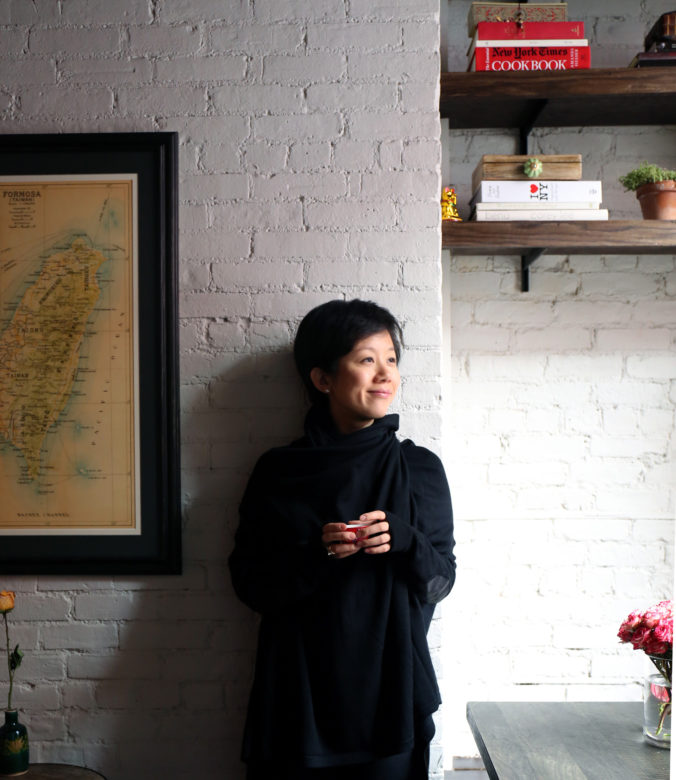
Té Company—Elena Liao’s serene, focused townhouse of Taiwanese teas in the heart of the West Village—isn’t just one of the best tea bars in New York, though it certainly is that. For someone like me, who grew up drinking bags of Lipton, this place feels like a portal to another world. In lost afternoon sessions spent steeping the leaves in quiet contemplation, or tea-stoned giggle fests over pots with friends, I look forward to visiting here whenever I’m lucky enough to find an extra few hours in lower Manhattan.
For Tea Week on Sprudge, Té Company is featured in Scott Norton’s authoritative overview of New York’s best progressive tea houses. But I wanted to dig deeper into this space, in particular, and learn more about the person behind it. There are many lovely places to drink tea in New York but nowhere quite like Elena Liao’s Té Company. I hope you enjoy this interview, which was conducted by phone between New York City and Portland, Oregon.
This interview has been edited and condensed for clarity.
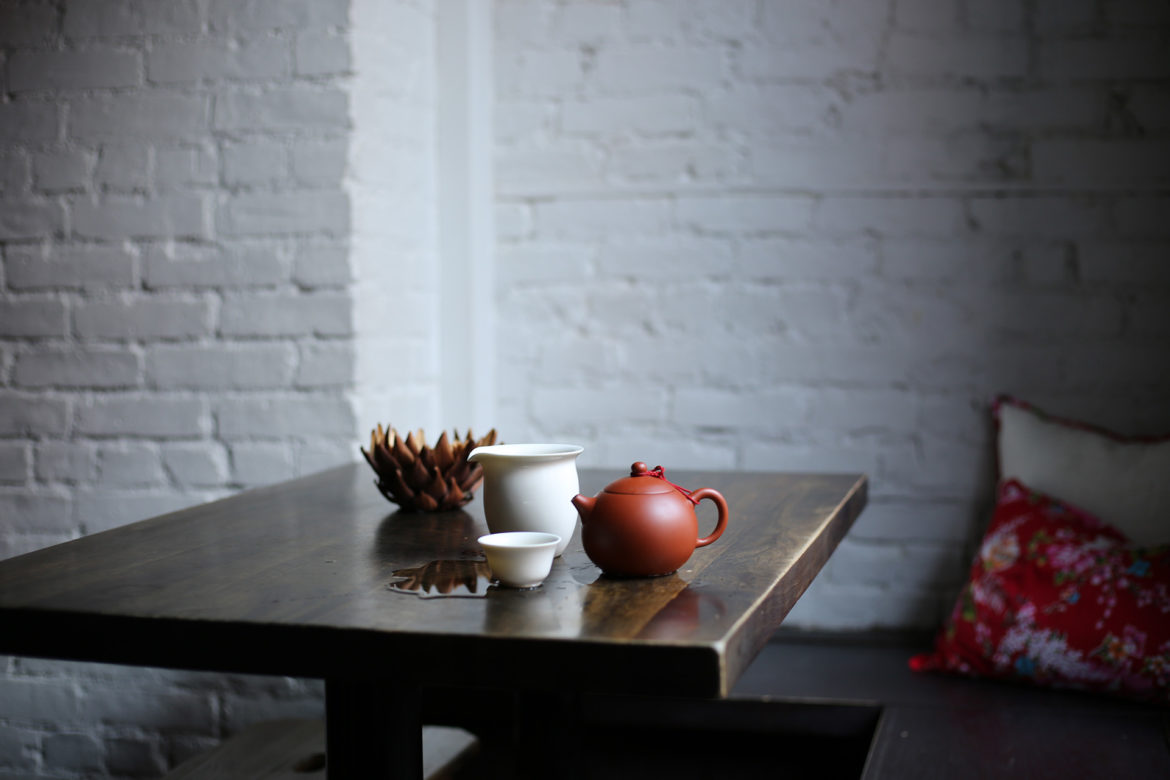
Hi Elena, and thanks so much for speaking with us! Talk a little bit about what you do at Té Company for folks who are unfamiliar with the space.
We are a Taiwanese tea house in the West Village of New York. We specialize in Taiwanese tea. If you come in to visit our tea room you could do a few things with us. We offer something as simple as brewing a cup of tea to go, even though most people choose to stay because it’s a nice, relaxing space that feels almost hidden, and that’s hard to find in the New York landscape. Most people choose to sit and wait for a table. Once there, you can enjoy up to three steeps of any tea you choose, from around 25 to 30 different kinds of tea on our menu, plus a few blends we do ourselves (including a few that are caffeine free).
We also have a small food menu, and offer a light lunch between noon and 5:00pm. While you’re in the space, really anything that relates to a tea experience is available to you: you can purchase loose leaf teas to take home, try a flight of teas from our menu, or sit with us to book in advance a private tasting session. In that case, me or one of my staff members will sit with you for an hour or so and try teas together. We’ll drink five different things and talk about them.
What is your professional background? How did the shop get its start?
I don’t have a tea background and neither does my family. I don’t have a hospitality background, either. I worked for an American big box retailer for like a decade, mostly in the merchandise planning world, managing budgets and margin targets for merchants at a huge retailer. That’s my background, and it’s very different from what I do today, although I must say there is something universal about running a store. However, I used to manage a book of business for a fleet of 500 stores, and now I only manage one! It’s different, and the scope is a lot wider, but there’s similarities and there’s a learning curve. Hospitality environments in New York City are different from anywhere else in the world, and when you throw in tea knowledge and sourcing and all of that, it becomes a very different thing.
Honestly, this was a side project I was very curious and interested about, and it just kind of blossomed into what it is today. Actually—I think your readers will appreciate this—I only started to really learn about tea because I was trying to figure out how to make a decent coffee pour-over! This was in like, 2008 maybe, or 2009, and it’s when Blue Bottle was still a young company here in New York, and Intelligentsia was just coming out here too. Coffee felt very new at that time, the idea of a “third wave of coffee” felt so interesting and delicious, and that’s actually how I started learning. I liked the idea of there being so many stories, and so much nuance behind the scenes of it all for this beverage.
But I grew up drinking tea, and that’s part of my family. I’m from Taiwan—everyone drinks tea like it’s water. And after getting into coffee, it made me start to say, “You know, I drink a lot of tea… maybe I should learn about it like how I’m researching coffee, too.” And then I fell into the rabbit hole…
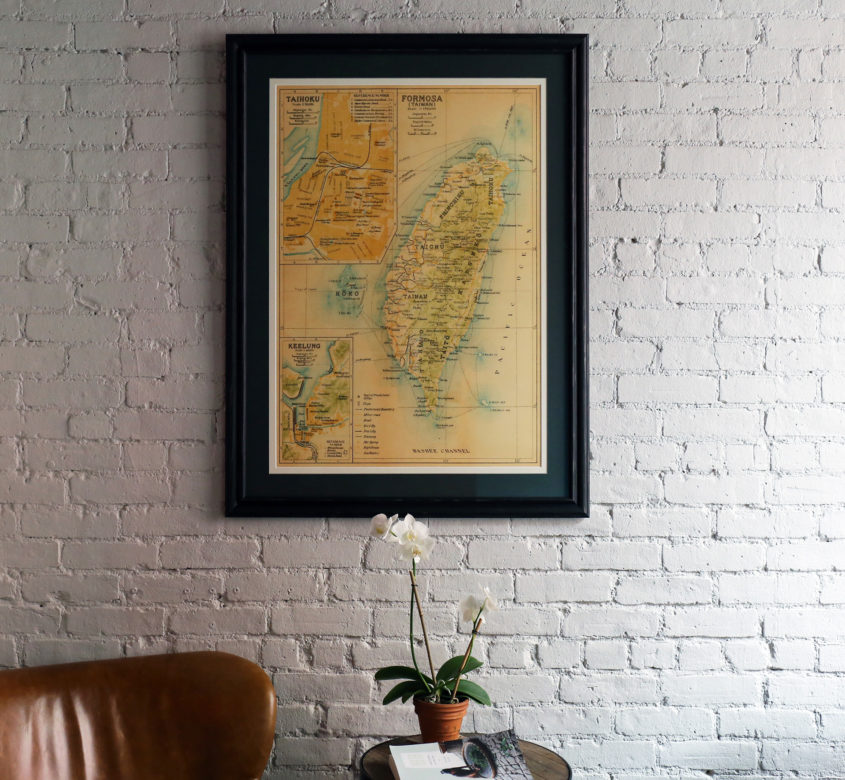
Talk to us more about your connection with Taiwanese tea. Why keep such a tight focus at Té Company?
You know, when I was learning about tea it was literally just by Googling “what is tea” and oh my goodness—all these different styles come from the same plant? I had no idea! So when I decided to learn about it more, I quickly felt the need to narrow it down with a focus; I felt like for me to deliver something significant in a tea context, I would need to have a lot of focus and intention. In the very beginning, I started by selling teas to restaurants on the side while still working full-time at the time. The more I learned about tea, the more I realized how big it is and how long it would take me to learn even a little bit of everything there was to know. There is no crash course for tea; it is a lifelong learning. But the truth is, if I needed to do something to make me stand out and find a focus, well, I am from Taiwan originally. I still have family there, and they have connections—my grandfather, especially, has a lot of connections to agriculture from in and around the little town he is from, outside Taipei. And so I started there. I said, “You know—I’ll just do Taiwan.”
Most tea companies offer something from every country, and I just felt like there was no way I could do that and say something original, or learn enough to accomplish anything before I was 70! But Taiwan, it just makes sense. I should take advantage of my heritage, you know?
And from there it was just connection after connection. Tea is very much a relationship-based buying process. There are thousands and thousands of small family farmers growing tea in Taiwan alone. That’s more than enough to focus on.
Since opening in 2015, have you noticed a progression in knowledge from your guests? Do you feel like (in New York at least) people are becoming more educated and interested in tea over these last few years?
I definitely think there’s an increased interest, knowledge, and focus being paid to tea right now. In New York, the change has been dramatic. Back in 2009, when I was on Google trying to learn, there wasn’t even really a place to go and find out more, unless you were going to basements in Chinatown or little furniture stores that also happen to broker tea off in the corner. That was what it was like when I was starting. Now people are caring more, there’s more access, and there’s so much more interest being driven through things like third wave coffee bars and the whole matcha trend. We don’t serve matcha at Té Company but I do think it serves as a kind of bridge, connecting coffee drinkers with tea in a very natural way. I think most every coffee shop in New York has matcha now; it’s such an obvious substitute for espresso, and it’s a very easy way for anyone to opt out of coffee while still enjoying a cafe environment.
Matcha makes a bridge, and from there the question comes: “What else is there in tea besides matcha?” That increases awareness and curiosity, and I think it has really contributed to increased interest over the last few years.
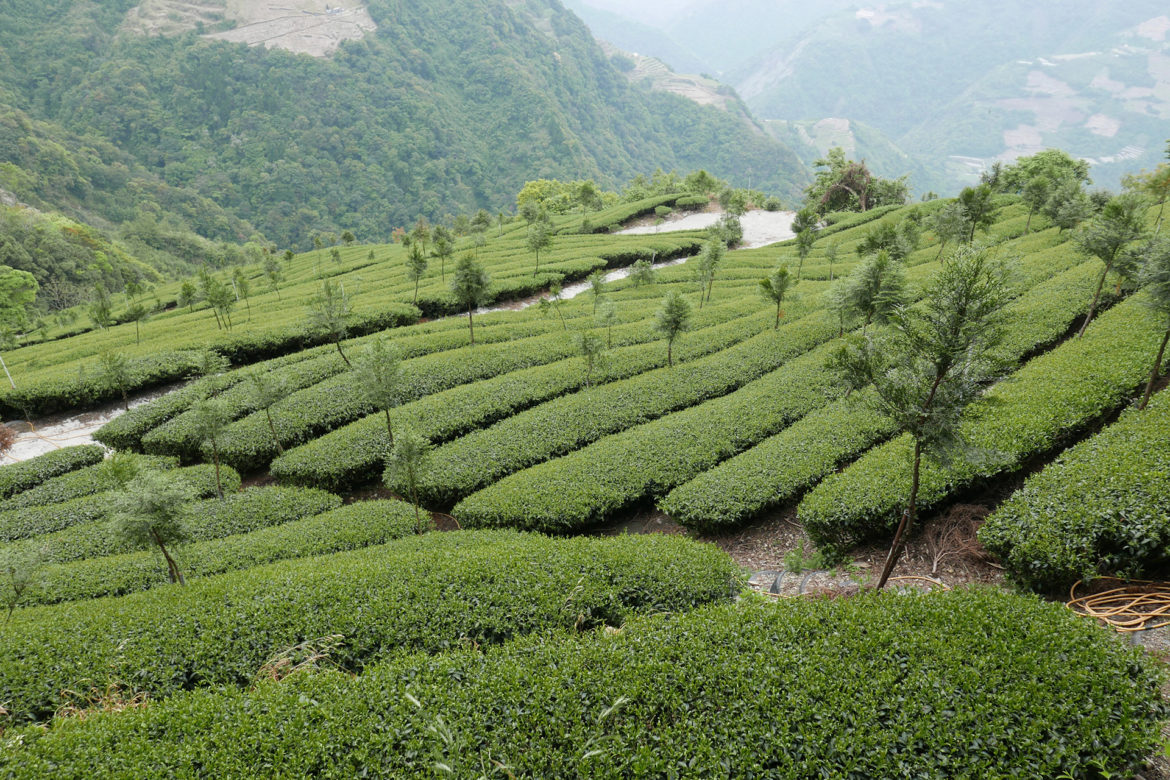
There is an interesting section on your website about the health benefits of tea. Talk to me about that a little bit more—is this something you have experienced in your own life as a tea drinker?
I think for most people, when you ask about healthy tea they’re going to say green tea, first and foremost. The Japanese government has actually commissioned quite a few studies around the health benefits of green tea, and they see it as an angle to sell the product. For us, on the website, there was so much info we could have included, but we had to narrow it down, and so what you’re reading now is very broad-stroke—and of course we want to be compliant with regulations, and make it clear that any benefits are suggested. We’re not claiming efficacy in any way.
But if you look at Chinese medicine and, well, tea throughout China’s history, tea has its origins as a medicinal plant. Chinese medicine is all about plants and animal parts, and tea consumption comes from a medicinal place. There’s different properties of tea that, when it gets processed differently into white teas, green teas, oolongs etc, impact your body differently. And body type is a part of that. Not everyone benefits the same way, and some have sensitivities.
For me personally, you know, I think I have been conditioned to just accept tea as part of my life in a really intrinsic way. I drink more tea than I do water, and it’s been this way since I was a kid. My mom, when I was an infant, would use tea leaves to rub around my gums before I had a tooth come through, because this was thought to be antibacterial. I have been drinking this stuff since I was an infant, and as an adult I’m constantly dosing myself, so I don’t really know any different. But I do see it with our guests who come in—people really do feel better from drinking tea, for different reasons. It gives them focus, it calms them, it brings a sense of awareness and focus internally. Some dream when they drink tea, whereas they never used to dream. People can almost get a little addicted to it, but I think some of the benefits are certainly obvious.
How much tea do you drink a day on average?
[laughs] That depends! If I’m working in the tea room, probably I’m drinking more. If I’m working at a desk I won’t be drinking as much. But on an ideal day, there is a pot going during breakfast, then a pot going after lunch, and then a new pot going after dinner with dessert or fruit. If I could drink around an ounce of dry tea leaves a day, that would be a great day.
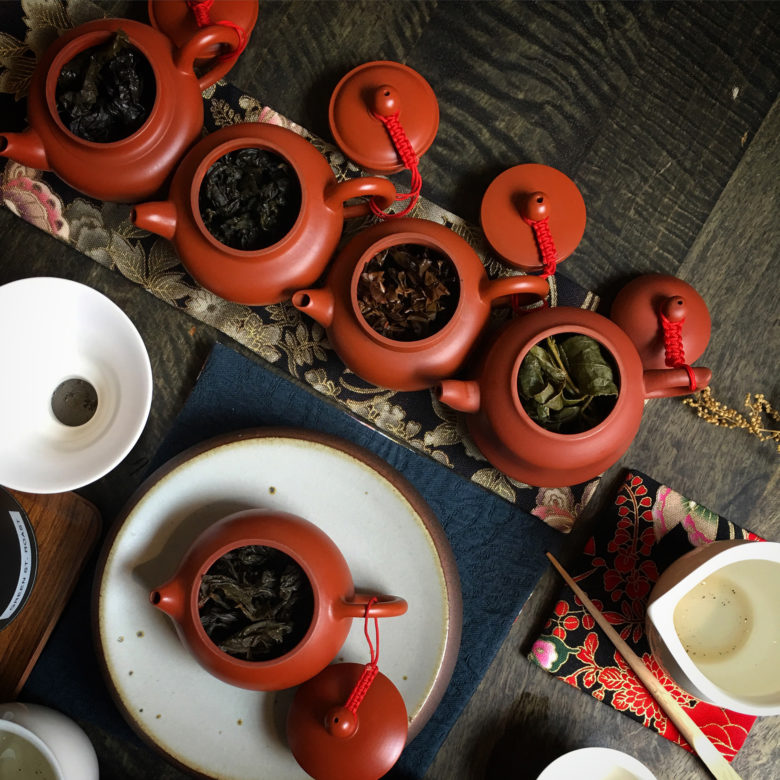
You touched briefly on the private tea tasting experience available to guests, but I’m wondering if you can tell our readers more about what they can expect if they book this?
Tea tasting—and really, just the act of sitting with someone to drink tea—is not a very common thing in the United States. I’d say in terms of experience, maybe a wine tasting is the closest thing to it, but generally people don’t know what to expect from this when we offer it.
Basically you sit with us for an hour and a half, or maybe two hours if I’m hosting—I am chatty and I talk a lot about tea—and we try five different teas in sequence. Generally that means maybe two different styles of tea, and some variation within those styles. The foundation of these tastings are educational based, so it’s not so much like, “Do you taste apricot in this brew vs. do you taste grass?” because the truth is, people taste different things. What we had for breakfast, our life experiences, all these things influence how we experience flavor. And so it’s really more about using the opportunity as an education, where we show you photos of where this specific tea was grown, what it looks like, and where it’s made. You get a virtual leaf to cup experience without traveling. We share photos and videos from when I go sourcing, and answer any questions people might have. Oftentimes I’m asked the same question you asked about health benefits; tea is a large and wild world, and I do not know every answer, but we try and make it a very fun and open experience, so if I don’t know something I’ll be there on my phone alongside you looking it up!
And of course, sometimes people just want to drink tea and talk about their cats, and that’s fine too. We have no rigid design to our private tastings. It doesn’t have to be a certain way.
How much time a year do you spend sourcing tea?
I’m gone about a month a year, give or take.
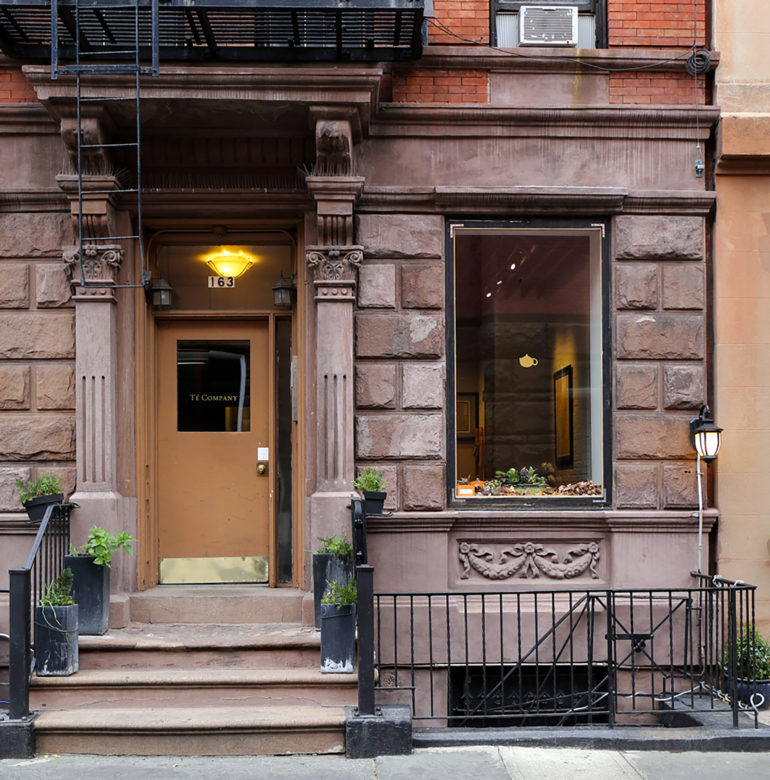
What did this charming building in the West Village used to be?
Most recently it was a vintage cookbook store, and then prior to that it was a lampshade store, and then at some point a record shop where you could smoke weed. When we got in here, it was empty. The building is from 1911.
People are obsessed with your Pineapple Linzer cookies! How did this all come about? What’s the most you’ve ever seen someone buy in one day?
So, the story of the cookie…
In the very early days of Té Company, when I first started thinking about selling brewed tea to public customers, my husband and I would sign up for these outdoor markets. And for the first few that we did, I knew that I wanted something that could help… well, tea can be a little obscure. It’s not as friendly on a pedestal to some people, especially when you’re charging a premium in line with it being a premium product. If you grew up on Lipton tea, it’s not as easy to connect with at first. And so I really just wanted something that would be fun to have as a hook—have a cookie, try some tea.
Pineapple cake is a very common tea snack in Taiwan, and it’s used as a celebratory snack. You can find it in most bakeries, and there’s certain places who are very well known for their version of pineapple cake, which in Taiwan is typically like a cube of butter pastry, soft and crunchy, with pineapple jam inside. My husband has been a chef for many years, so I asked him if he could make something like that. If you visit Taiwan and bring a gift home, it will be some kind of pineapple cake, probably picked up next to all the teas gift boxes they sell at the duty-free. It’s a very common thing.
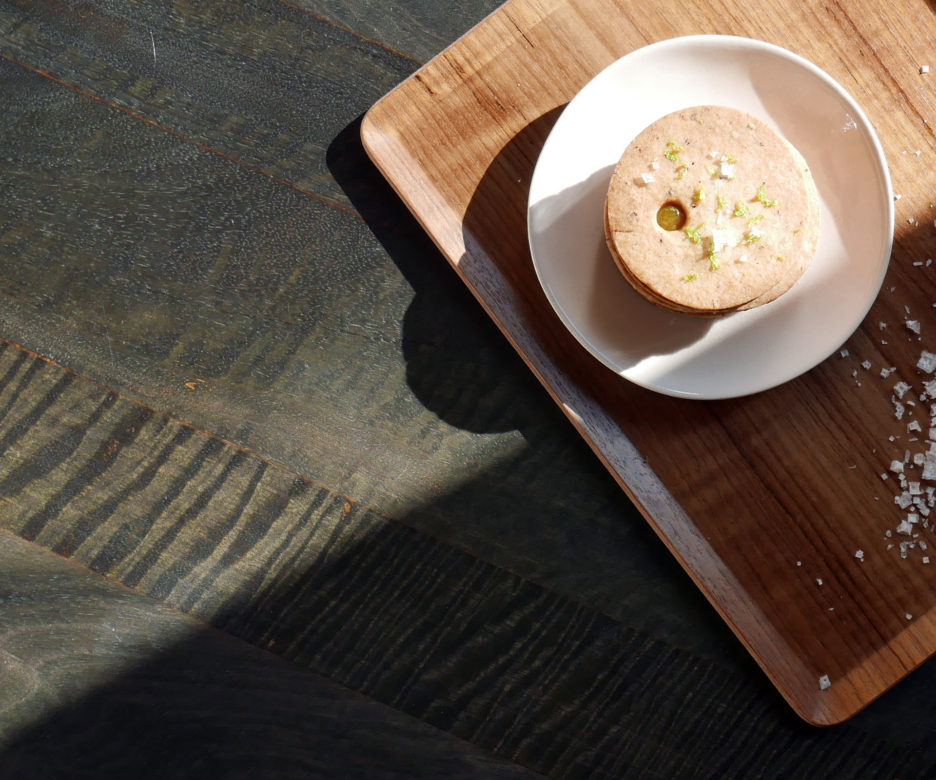
And so my husband, he did a few trials and sizes, but ultimately the linzer cookie form was the winning combo, with zest and cook salt. It started for the markets and then just kind of stuck around through us opening the store. It’s become a very important part of our journey.
In the beginning we didn’t make that many a day, maybe just 20? When we first opened nobody even knew where we were, we were very hidden, but then somebody wrote an article and mentioned the cookies and all of a sudden… people started wanting dozens and dozens… and we had people like, throwing temper tantrums or shedding tears because there aren’t enough cookies. I had to give people tissues. I felt bad, it’s like, “I’m sorry—there’s no kitchen attached so we can’t just make more.”
It’s become this kind of modern New York thing, I think—a taste of New York to travel home with or bring your friends.
Yes, absolutely, and as it has gotten more popular now we are a lot more organized. Over the holidays we sold big boxes, and we have a cookie assembly line in the back of the store. People are flying with these back home now from New York all the time.
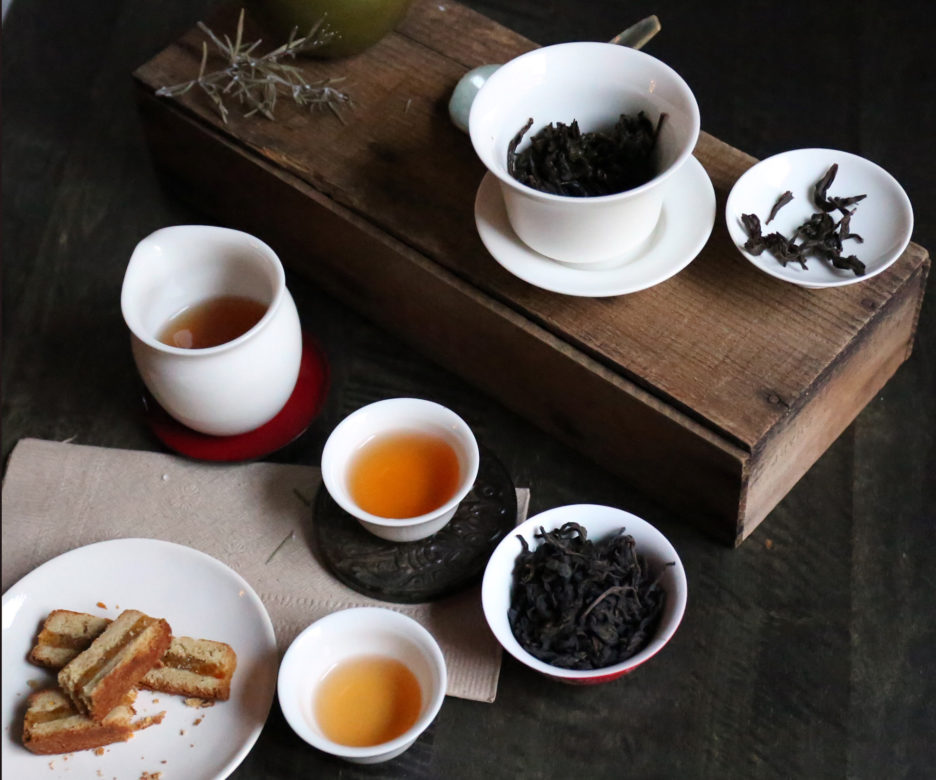
Do you have a personal favorite tea? An all-time best, or something you return to year after year?
Yes. It’s called Graceful Hill, and it comes from a tiny town—Yilan—a beautiful town an hour outside Taipei. My parents are from there, and the family that makes the tea is friends with my grandfather. This is the very first tea garden I ever visited, although it’s not a town that’s famous for tea. You do not see these teas at the airport. People kind of don’t really know about it.
It is not an expensive tea, and it is machine harvested—in many ways, on the scale of how you evaluate tea, it is not top of the line. But I grew up drinking it, and until my late 20s it was nearly all I ever drank, and so the flavor of this tea has been imprinted on my brain since I was an infant. I have an emotional connection to this particular tea, and I’m a little afraid that it will go away, honestly. The wife of the family who grows it, she is 80 years old now, and she runs the show. I’m nervous every year that she will stay in good health. This is the most gulpable and satisfying tea for me to drink anytime, in the shop or just around the house.
As for the rest, all the other teas—it depends! Picking a favorite tea is like picking your favorite child. It depends on the day, and the rest—depends! Greener style oolongs, or roasty oolongs… it’s like picking your children, who do you like most. It depends on the day.
Thank you so much.
Jordan Michelman (@suitcasewine) is a co-founder and editor at Sprudge Media Network. Read more Jordan Michelman on Sprudge.
All photos courtesy of Té Company.
Sprudge Tea Week is presented by Breville USA.









